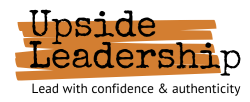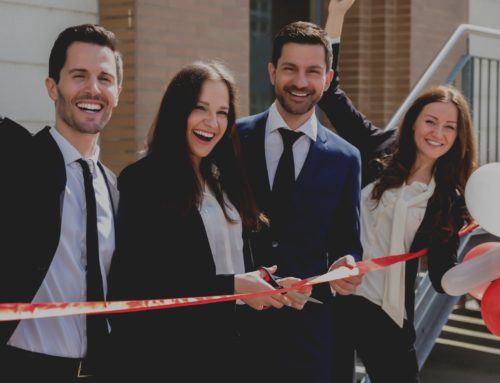Cindy was a colleague of mine—a very smart, competent and organized worker. In my experience, she always met her commitments. And, although she rarely volunteered for additional assignments or training, the work she delivered was above average but never spectacular. Moreover, she generally carried a serious demeanor; she kept mostly to herself and I noticed she rarely smiled or laughed at the office. My takeaway, based on this limited exposure, was that she was, in general, an unhappy person.
Then came the annual summer company outing with lots of games and food. People were able to bring their families. I noticed a totally different Cindy in the crowd—she had her young kids with her, she was smiling, laughing, seemed far more relaxed and more open to the people around her.
Do you ever feel this way: You are one person at home and a totally different person at work? That happens to a lot of us. As I got to know Cindy better over the next few week she revealed to me that she felt as if she had to bring her serious, no-nonsense self to work. She didn’t feel comfortable bringing her whole self to her job because work is ‘…serious, I can’t mess around. I’m getting paid to do a job and that’s what’s important. I don’t feel comfortable sharing a lot of my personal life with my manager or my peers. I’ll keep the fun at home.’
This attitude isn’t unusual given the tremendous work ethic many Americans share. Other folks feel uncomfortable being themselves at work because of some struggle with a co-worker or boss that makes work unpleasant. We just want to get through the day as quick and painlessly as we can and get home.
While the attitude is understandable, it’s unfortunate for a couple of reasons: as a team member you approach work with a guardedness, always being careful not to share too much and, as a result, not being fully engaged and resourceful. And the organization loses out on your full range of creativity, commitment and resourcefulness.
But this situation is not unusual. In fact, most workplace studies show that only about 30% of us are truly engaged at work; another 50% or so are unengaged and the remainder are in a worse space.
I’m here to say your work life doesn’t need to be this way. Some of us have better work environments than others, for sure. And we will always have challenges with people and assignments at work. Ideally, though, work can be an enjoyable and fulfilling part of our lives that leverages our unique strengths and brings a fullness and sense of accomplishment. Know that much of your enjoyment of work comes not from others or the nature of the work itself but rather from within you.
Below are some ways to approach your workday which can help make it a better, more fulfilling experience.
1. Having difficulty with a colleague? Re-launch with a powerful question or two.
We can get into a rut with people in which every interaction is negative, partly because we expect it and partly because we become robotic – that is, we stop listening because we think we already know the answer. To change your experience of this person, try a new powerful question; that is, one which is open-ended usually beginning with ‘What’ or ‘How’ and is about the work, not about the personalities involved.
For instance, if a colleague is describing a new idea, ask a simple and powerful question: ‘What would that look like?’ Listen faithfully and then follow up with four even more powerful words: ‘Say more about that.” If you practice this, your colleagues will be eager to share with you and you will get to know them better as people and be more ready to collaborate. One hint: avoid questions that begin with ‘Why’; questions that begin with ‘Why’ move you to the analytical, judgement side of your thinking and tend to close off the curious and learning part of the brain.
2. Set your intentions prior to your workday or a challenging interaction.
We all have meetings we dread either because the meeting is poorly run or because of the presence of a particular challenging personality. It genuinely helps to decide how you are going to show up prior to the interaction: ‘I will show up enthusiastic… or curious… or open to learning and feedback.’
Find an intention that allows you to see it from a different, more positive perspective. Try it a every day for a week (it takes a bit of practice) and you will be amazed at how much you learn about yourself and others. It’s true: Our words become our emotions which show up in our actions.
3. Work in your strengths more often.
The evidence is fairly clear that people who work in their strengths every day are more productive, more engaged and perform at a higher level.
It’s not enough to be good at something. A strength is a task you are good at in which where you feel energized and productive, where time flies. To enhance your sense of engagement at work, it is worth examining what your strengths are and discussing ways to increase the use of your strengths with your team. You can learn more about identifying and living your strengths in this great video featuring Marcus Buckingham or at strengths.gallup.com.
4. Remember, they hired the whole you.
When you went through the hiring process, your bosses likely identified a unique set of gifts and talents in you that would bring value to the organization. That includes your work skillset but also your personality, your spark, your enthusiasm and one-of-a-kind perspective. Remember to bring that whole, wonderful self to work. You will find yourself more engaged when you are able to bring all of your talents and gifts.
None of these are earth-shattering, high tech approaches. Instead, they are ways to build a different, more positive perspective about your work. You have heard it many times: most of us spend between 30% and 60% of our waking hours at the job. What if you could show up as your most authentic and powerful and giving self every day- would that make your workday feel less like…. Work?









